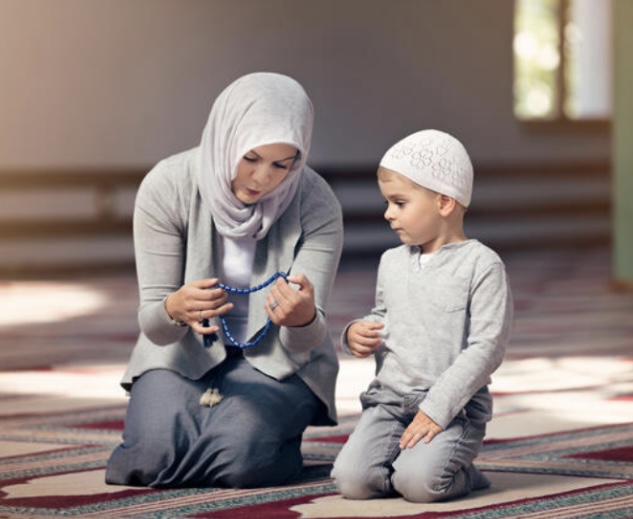Children are blessings. It’s a known fact. When an impending birth is being announced in the Quran, there is always a narration of the angels announcing joyous tidings.
It’s no wonder that Muslim families often celebrate their children and tend to have many.
Many children, many blessings. It does seem like the most natural way to feel.
However, when it comes to parenting children, especially in today’s world, it’s not always joyful.
There are challenges. And while parents brace for these challenges, they can sometimes rub off poorly on their children.
Arguably, Muslim families that are very inclined to culture are often associated with discipline, reprimands, requests for unconditional obedience and in its ugliest form, dictatorial parenting.
Muslim youth often talk about their parents “telling” them what to do, how to behave, what is expected of them at school, and what they should be when they grow up.

Many times, children are labeled as being disobedient if they have differing opinions or interests, and even as adults (post-puberty), they are often reprimanded for being rebellious.
At times, they are “cast away” from families, if not physically then very much emotionally.
This may seem like an extreme anecdote, but there are cases where scenarios like this surface.
Finding the Balance Between Them and Us
Extreme dictatorial parenting or anything that skews itself towards the imposition of parental rights over and above the rights of children is a breeding ground for disaster within a family.
It is true that children are required to be THE BEST to their parents, but harping on this right of parents cannot obliterate the rights of children into a dark hole.

Prophet Muhammad (peace be upon him) reminded believers to adopt kindness towards children, and parents have a host of responsibilities towards them as well.
The responsibilities of parents include giving children a good and robust education.
A good and robust education is subjective as times change, and it cannot be solely definitive to the child’s ambition and how much he or she earns once he or she is an adult.
I’m highlighting this because it is also common in many Muslim cultures that parents impress upon their children that true success for themselves will have to materialize in a medical degree (the best-case scenario).
If not a doctor, children are expected to emerge as engineers, lawyers, accountants, or with IT qualifications in order to be recognized as successful individuals.
Of course, it branches further into the type of house they can afford and all the amenities that go with it, including a large screen television and matching furniture, and the fancy car that they drive.
While it is not forbidden for children to go on to be professionals, certainly, this journey should not compromise the journeys of their faith.
A strong aqeedah, taqwa with credence, a sense of tawakkul in Allah, and fantastic adab are all roots of a robust education for a Muslim.
Let Them Be Their Own Person but Provide Guidance and Support
Prophet Muhammad (PBUH) once advised that a believer should do whatever he wants as long as it does not embarrass him. (Bukhari)
Obviously, this advice has to be read with the injunctions to not transgress or approach matters that are haram.
Parents need to step back into parenting.
Rather than assuming the role of an authoritarian and forcing children down paths that do not interest them when it comes to learning, perhaps allowing children to explore the world on their own would be more beneficial.
Of course, the required guidelines in Islam step into play here.
Many “brands” of modern parenting encourage all learning to be child-led, without parents even putting a curb on their interests.
Pages: 1 2

